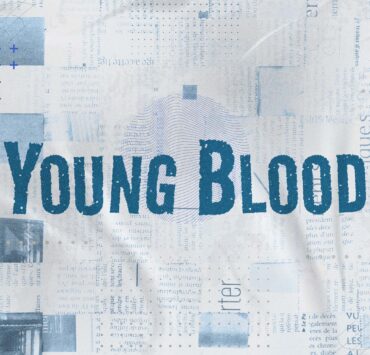Faith that endures

When I began my master’s degree in clinical psychology two years ago, I did not expect that one of the most profound outcomes would be developing a deeper appreciation of my faith and its role in my life. Over the past decade, spirituality and religiosity have gained growing recognition for their contribution to a person’s enhanced well-being. Spirituality—often characterized by a sense of deeper purpose and connection to something greater than oneself—has been consistently linked to higher subjective well-being, both among religious individuals and nonbelievers. Practices like meditation and mindfulness cultivate self-transcendent emotions like awe, gratitude, and hope, which strengthen a person’s emotional regulation.
For those who adhere to a particular faith tradition, the benefits can be even more pronounced. Studies have found that regular religious attendance and prayer correlate with lower rates of depression and substance abuse. This is largely due to strong social support systems found in religious communities. Surprisingly, however, these supposed benefits may not be as deeply felt or valued in the Philippines. A 2020 Social Weather Stations (SWS) survey found that the number of Filipinos who believe religion is important dropped from 83 percent to 73 percent. In another SWS survey, where 79 percent of respondents were Filipino Catholics, only 38 percent said that they attend religious services at least once a week.
A possible reason for this decline is that while many of us inherited a certain faith tradition, not everyone has access to the necessary formation to meaningfully contextualize or internalize its teachings. This insight came about last Saturday when we tackled the concept of faith during my class on development of psychological thought. My classmates complained about how religion was taught to them largely through rote memorization of prayers and doctrine, despite all of us attending well-known private Catholic schools.
American theologian James Fowler emphasized that a person’s faith development grows in parallel to their emotional and mental maturity. In the early stages, children learn about the faith through stories and the rituals practiced. As they enter their teens, they transition into what Fowler calls the synthetic-conventional stage. At this point, they are able to think more deeply about the meaning of their faith and start connecting it to broader questions of values and morals, though their understanding remains largely shaped by authority figures like their parents, teachers, and other religious leaders. Fowler says that true spiritual maturity emerges in later stages—where individuals are able to critically reflect, confront doubts, and ultimately reconstruct belief in a way that is deeply personal and embodied.
Perhaps the way the Catholic faith is largely taught here remains confined to the early stages that Fowler described, rather than showing how it connects to a person’s lived experiences and encouraging them to explore the mysteries and meaning of the sacraments and scripture. Even rarer are religion teachers who encourage students to articulate their questions and doubts without shame. If encouraging “blind acceptance” did not work for former generations, it would certainly not work now for young people who have access to diverse sources of information and worldviews. If the emphasis is continually placed on compliance versus genuine understanding, it is difficult to foster personal conviction. This could leave individuals with a flimsy relationship with their religion that could easily be shaken by moral dilemmas and personal hardship.
Part of Pope Francis’ legacy is how he consistently modeled for us the kind of faith that welcomed questions not as a threat, but as part of the path toward profound trust and understanding. Throughout his leadership, he challenged Catholics to move beyond rigid legalism and into spaces of authentic encounter, dialogue, and discernment. His example is something more Catholic schools here urgently need to take to heart.
One of the major challenges confronting Catholic schools, including the one I run, is finding teachers who can guide students toward a mature and living faith. This difficulty is, in many ways, the product of generations of underdeveloped religious formation. Our school is fortunate that despite limited resources, we have a passionate chaplain deeply committed to forming not only our students but also our teachers and staff. While there remains significant room for growth, it is profoundly encouraging to hear our students speak of God as someone they can turn to, which is so different from the “distant/judgmental God” many of us grew up with.
If the Catholic faith is only taught as rules to follow, we risk setting up young believers for disillusionment and apathy. But if we teach faith as a living relationship that continues to deepen—through prayer and service, healthy doubting, and reflection—then hopefully we will effectively guide them toward a faith that matures, a faith that endures, a faith that is relevant and lived.
—————————————
eleanor@shetalksasia.com


















